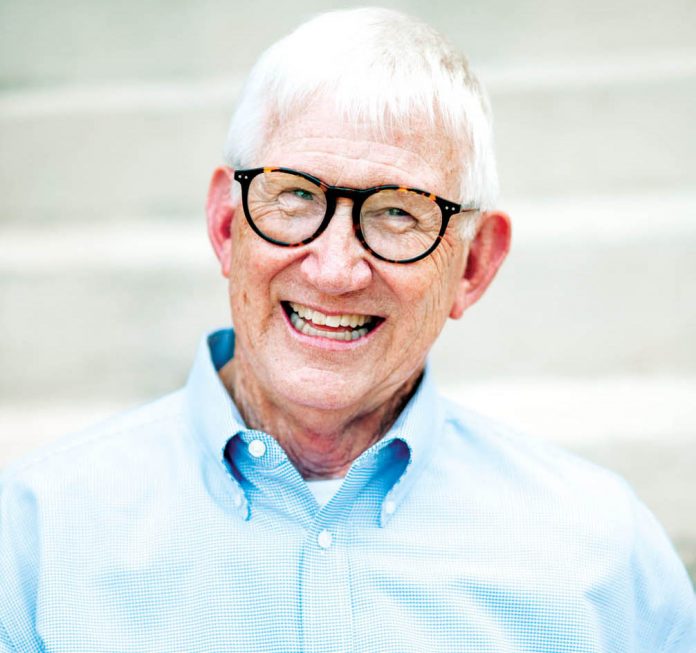story and photo by Bobby Anderson, Staff Writer
For the past 17 years as a hospital chaplain, Mike Bumgarner helped patients and families with some of the toughest decisions they would ever face.
For nearly two decades before that, he served in ministry, helping guide individuals on their individual spiritual paths, navigating life’s ups and downs along the way.
“My greatest joy has always been just being with people. I’m an extrovert and I get energy from being with people,” Bumgarner said. “But focusing conversation and having a conversation around focused issues and helping people make determinations how they want to make their life better whatever that means … I get such great joy out of watching light bulbs come on in peoples’ minds.” (story continues below)

So there was little doubt in his mind that when he retired from the hospital and turned 70, the next chapter of his life would still be centered on helping people, this time as a life coach.
Bumgarner started his road to professional coaching in 2012 with formal training.
“I knew I wanted to do life coaching after I went through all of that,” he said. “The biggest challenge in doing coaching well is learning to ask really good questions instead of giving advice.”
Bumgarner is a member of The International Coaching Federation with the designation of Associate Certified Coach. Before serving as a hospital chaplain for 17 years, he served as a college minister for 22 years.
For 19 years he served on church staff as a college minister and pastoral care.
A staple in the Norman community, he also served on the Board of Education for Norman Public Schools.
He is able to incorporate his experience through years of chaplainship into his practice. He can help people through end-of-life issues, debriefing after tragedy, and general guidance for individuals and families facing traumatic experiences, terminal illness, or death.
It was friend Kelly Lashar, MA, LPC who Bumgarner says helped him make his dream a reality.
Lashar is co-founder of Restore Behavioral Health, a private counseling practice of independent contractors providing mental health and relationship care to the community.
With locations in Norman, Edmond and Midtown OKC, a team of different types of therapists and coaches, faith and non-faith based, bring a variety of education, training, experiences, personalities, and specialties.
The business plan for Bumgarner isn’t grandiose. He’s not out to build a practice for the masses.
He’d like to work two or three days per week, pouring into maybe 20-30 clients each month.
“None of us have it figured out,” he said. “A coach partners with a client or a team or a business to help them discover and put into action any agenda they deem will benefit their progress as a person or a company or a team.”
In short, coaching is designed to help a person maximize their potential.
That can take a lot of directions and oftentimes uncovers needs that have been hidden for some time. That’s why Bumgarner has a keen ear.
“If a client comes to me for coaching and it becomes obvious after two or three sessions that they are stuck in some issue from the past that is still greatly impacting their present, ethically I would offer the opportunity to refer them to a therapist,” he said. “You may not be knee-deep in the mud but you’re certainly ankle deep and you need to sit down and talk about this and that isn’t what I do.”
“Ethically, my job as a coach is to make sure I’m always distinguishing to you what I do as opposed to what you’re asking for.”
He says coaching is about discovery. Therapy is about recovery.
“I’m going to help you determine issues, challenge you on any kind of obstacles, any kind of belief systems or assumptions that could be inhibiting you from achieving whatever goal you’re setting,” he said. “That requires that I listen very deeply to what is said and what is not said and help you surface those things and help you design action plans to get you from where you are to where you want to be.”
And, ironically that is driven by the client.
“Coaches never tell clients what to do,” he said. “Clients in every session set the agenda. If they decide in the middle of the session they want to go a different direction the job of the coach is to go with them.”
But “there is a lot of collected wisdom,” Bumgarner smiled.














